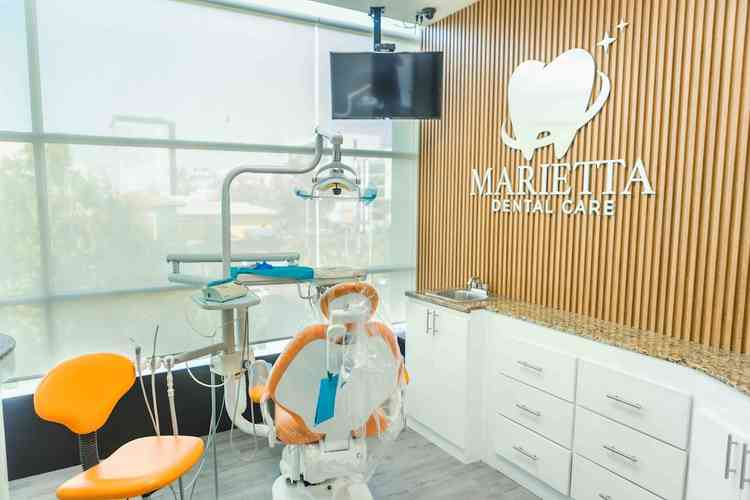All About Dental Implants

Prathyusha Itikarlapalli
- Content Writer

Table of contents
None
Key Takeaways
-
Dental implants are an incredible solution for missing teeth. They can restore your confident smile, improve your chewing and speaking ability, and even help you speak clearly.
-
Your dentist will perform a detailed dental checkup before suggesting your treatment plan. They will evaluate your jawbone quality and oral health to determine your eligibility.
-
Dental implant surgery is a surgical procedure where your dentist will surgically fix the implant, connect the abutment, and attach artificial teeth. The entire procedure will be done in multiple dental appointments at your dentist’s office.
Fallen teeth disturb the quality of life, affecting everything from chewing food to speaking clearly and even facial features. Although more straightforward options like dentures or bridges can fill the pesky gaps left by missing teeth, they can’t match the longevity and natural feel of dental implants. Dental implants are biocompatible, artificial screw-like devices made from titanium or zirconium. Because they are biocompatible, they don’t induce immune responses in your body and integrate into the jawbone over time. This process is osseointegration. Dental implants have their own set of benefits and risks, too. Now, let’s dive into the details.
Benefits of Getting Dental Implants
Dental implants are like superheroes. They replace missing tooth roots and offer a plethora of benefits.
-
Dental implants are durable and a permanent solution for missing teeth. They give you a natural feel and also restore your chewing and speech clarity.
-
Missing multiple teeth from the front row can ruin the appearance of your smile. It also makes space for the lips and cheeks to sink in. Dental implants impart fullness to the jaws and prevent the appearance of sunken cheeks and lips. Thus, implants gift you with a youthful look by restoring facial contour.
-
Dental implants impart strength to the jawbone. Naturally, fallen teeth create space in the jaw, and the existing teeth can drift into these spaces. However, implants behave like natural tooth roots and prevent adjacent teeth from drifting in. Further, implants prevent jawbone loss, which can usually happen after tooth loss.
Therefore, getting dental implants gives your smile a more natural feel, enhances its beauty, and restores functionality while preserving jawbone health.
No wonder dental implants are the gold standard for tooth loss, offering incredible benefits. Nearly 3 million Americans have dental implants, and the number of people getting them is steadily increasing by 500,000 in a year.[1] However, some people do not prefer dental implants.
Like any other dental treatment, we have tooth implant side effects, too. Let’s roll up our sleeves and dive in together to understand the risks.
Risks Associated With Dental Implants
Here are some problems associated with getting teeth implants. Keep an eye out, as these are also the reasons not to get dental implants.
-
Dental implant costs are relatively higher than those of other temporary solutions like bridges or dentures. Further, paying high costs out of pocket is difficult for some.
-
Getting dental implants is a surgical procedure under anesthesia. Although it is super safe, there are slight chances of surgical site infection, delayed healing, or sinus proliferation resulting in implant failure.
-
Post-surgical numbness and dependency on a simple liquid diet for a day or two cause inconvenience for some patients. But here's the scoop: everyone's experience is unique! Some breeze through it like champs, while others find it a tad trickier. However, this is also a reason to avoid the dental implant surgery.
-
The success of dental implants largely depends on how you care for your new teeth. Think of it like nurturing a budding friendship! To ensure success, you will have to follow a strict diet along with some lifestyle changes. Sticking to post-surgical aftercare at first might be daunting, but you’ll experience good outcomes.
Dental implants carry some risks; they are a marvelous solution compared to other tooth replacement options. Knowing about the associated risks, let’s discuss the pain factor in dental implant surgery.
How Painful Are Dental Implants?
Your dental implant journey begins with your dentist delicately opening your gums to reveal the jawbone. Then, they will insert the implants skillfully into the jawbone and close the incisions gently. Here is the scoop! While there might be slight pain and bleeding (totally normal), your dentist will get your back by carrying it out under anesthesia.
However, you will start experiencing pain and discomfort that may reach peak intensity within 6 hours after surgery. This usually happens as the anesthesia wears off. To help with this and avoid swelling, you can rely on painkillers and ice packs for 2-3 days.[2]
When you get support at every step, why wait to get your turn for a drastic change towards a happier smile? Now, let’s dive into the detailed step-by-step- dental implant procedure.
Dental Implant Surgery Pre-Surgical Steps
You will have to visit the dentist's office before the implant surgery. Call it your initial consultation! Your dentist will carefully monitor your oral health and jawbone condition and decide your eligibility. Not every patient is a candidate for dental implant surgery. You must be a non-smoker with enough jawbone to get dental implants. Suffering from periodontal or soft bone disorders or diseases like diabetes, osteoporosis, and HIV can also deem you ineligible.[3] These factors can interfere with osseointegration and lead to implant failure.
The dentist will assess your jawbone quality and intraoral health by performing tests like CBCT panoramic and intraoral digital X-rays. Panoramic X-rays capture your entire intraoral cavity in a single picture. A CBCT (Cone Beam Computer Tomography) provides three-dimensional images of intraoral soft tissues, jaw bone, and nerve pathways.
Altogether, the main agenda of performing the pre-procedural tests is to understand your oral health condition and jaw bone quality. Suppose your dentist finds that your jawbone is not enough to support the implants. In that case, they will recommend adding bone material through procedures like ridge augmentation, sinus lift, or bone graft.
Further, your dentist will discuss the type of implants, anesthesia, and treatment plan for you. Feel free to inquire about any aspects of the procedure with your dentist.
Dental Implant Process Step-by-Step
You will arrive at the dentist’s office for your dental implant surgery. This is an outpatient procedure carried out under local or general anesthesia. Your dentist will initiate the surgical process by cutting open the gum tissue to gain access to the underlying jawbone. Further, they will drill small holes in the designated places where the implants are intended to be placed. Your dentist will fix the implant metal posts deep into the jawbone, close the incisions, and attach temporary dentures. You will receive permanent artificial teeth after the implant posts have been wholly integrated into the jawbone. Until then, these temporary dentures will serve the purpose.
These metal posts will fuse with the jawbone, ensuring long-term success. It can take 3-8 months, and after that, the implants are stable and sturdy. We recommend that you be careful with diet and oral hygiene during this phase. Start with a liquid diet and gradually transition to soft, mashed food while avoiding crunchy, hard foods. Keep an eye on oral hygiene, as implant site infection is a significant cause of implant failure.
After successful osseointegration, your dentist will screw tiny metal connectors called abutments on the implants. This is a minor outpatient procedure under local anesthesia. Your dentist will cut open the incisions, screw the abutments on the implants and close the incisions. Further, they will collect your teeth impressions to craft customized teeth. Your gums will be left to heal for 1-2 days, after which you are ready to receive the prosthetic teeth.
Once your gums have healed completely, your dentist will fix the customized artificial teeth onto the abutment. Once you receive the artificial teeth, you will check their alignment, color, and bite force. Remember to care for your artificial “new” teeth like you do for your natural ones.
Post-Surgical Care for Dental Implants
Dental implants can last for a lifetime with proper aftercare. Your dentist will recommend treating your new teeth like your old natural teeth. Maintain proper oral hygiene by brushing your teeth regularly. You may use non-abrasive toothpastes and interdental brushes for this. Further, avoid smoking, as it can hinder the osseointegration process. Consume non-sticky, cold foods for a brief period, and remember to add nutritious, healthy food packed with all essential minerals to your food bowl.
References
Disclaimer
The information in this article is for educational purposes only and does not replace medical advice. Always consult your doctor before starting any treatments.
With proper care, dental implants can endure a lifetime. However, the prosthetic teeth you get, such as crowns or bridges, will need replacement after some period. To ensure the implant's success, you should follow your dentist's advice and maintain good oral hygiene.
Getting dental implants involves a painful surgical procedure. Your dentist will numb your gums with anesthesia to make the procedure comfortable. After the surgery, you may use a painkiller or ice pack to minimize the discomfort for the first 48 hours.
Many people avoid getting dental implants because getting them involves surgery. Besides, implants are a costly procedure compared to other alternative treatments. Moreover, there are chances of implant failure due to poor oral hygiene or physical stress, which can lead to dislodging. You may avoid the downside of dental implants with expert advice.
So, we partner with the premier healthcare facilities!
Send me the list




